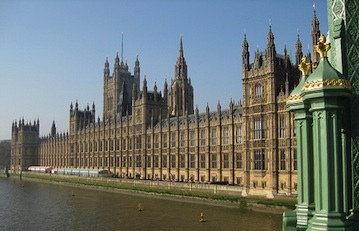Pensions dominated the Coalition's plans for its last year in power before the General Election as the proposals were announced by the Queen this morning.
Below are the details of the two pension Bills which have been set out today by the Government, following the Queen's speech to Parliament.
The Pensions Tax Bill is designed to implement changes set out in the Budget.
The Government said these would help people get on by giving them "greater freedom and choice over how to access their defined contribution pension savings".
According to the Government, the main elements of the Bill are:
• introducing a new tax framework that removes restrictions to the way individuals can access their defined contribution pension savings, and allows them to access their savings subject to their marginal tax rate
• removing the previous restrictions the government placed on how people are able to access their money and give individuals the freedom and choice to access their pension as they see fit
• introducing anti-avoidance provisions, to prevent individuals taking advantage of the new flexible arrangements for tax avoidance purposes
The Private Pensions Bill aims to provide wider pensions choice, with 'Defined Ambition' pensions encouraging greater risk sharing between parties and allowing savers to have greater certainty about their retirement savings.
The Bill would:
• Legislate so that all individuals with a Defined Contribution pension in the UK approaching retirement will be offered free and impartial guidance via a guidance guarantee, on the range of options available to them at retirement.
• Enable 'collective schemes', as used in countries such as Holland, that pool risk between members and potentially allow for greater stability around pension outcomes. It would also contain a number of measures relating to the valuation and reporting requirements for collective schemes.
• Depending on the outcome of the HM Treasury Freedom and Choice in pensions consultation, the Bill would allow the Department for Work and Pensions to either bring forward legislation to implement a ban on all transfers out of private sector DB schemes or not.
• make provisions for a new legislative framework in relation to the different categories of pension schemes. It would establish three mutually exclusive definitions for scheme type based on degrees of certainty in the benefits that schemes offer to members
• define schemes in terms of the type of 'pensions promise' they offer to the individual as they are paying in.
• A scheme would be categorised as a Defined Benefit scheme, a Defined Ambition (shared risk pension scheme) scheme or a
• Defined Contribution scheme, corresponding to the different types of promise – full promise about retirement income, a promise on part of the pot or income or offering no promise at all
• Bring forward legislation to ban transfers out of unfunded public sector DB schemes as announced in the Budget.
Other bills announced included:
Small Business, Enterprise and Employment Bill
• Small firms to be given fair access to government and other public sector procurement. A register of beneficial ownership will outline who owns and controls British companies.
• tougher penalties for firms flouting minimum wage rules and "abusing" zero hours contracts.
• Highly paid public sector workers will be prevented from claiming redundancy and returning to the same line of work within 12 months.
National Insurance Contributions Bill
• The way national insurance contributions are collected from the self-employed will be simplified.
• Revenue and Customs will be given new powers to enforce payments in tax avoidance cases. Targeted anti-avoidance rules will be introduced to determine whether arrangements are designed to avoid or minimise national insurance payments.
Childcare Payments Bill
• A new tax-free childcare subsidy worth up to £2,000 a year per child will be introduced in the autumn of 2015.
• All parents with children under the age of 12 will be eligible, if they are in paid work and earn less than £150,000 a year. For every £8 paid by parents towards the cost of childcare, the state will provide a £2 top-up. The existing employer-supported childcare scheme will be repealed.
The Queen also announced plans to re-introduce the Married Couple's Allowance.

